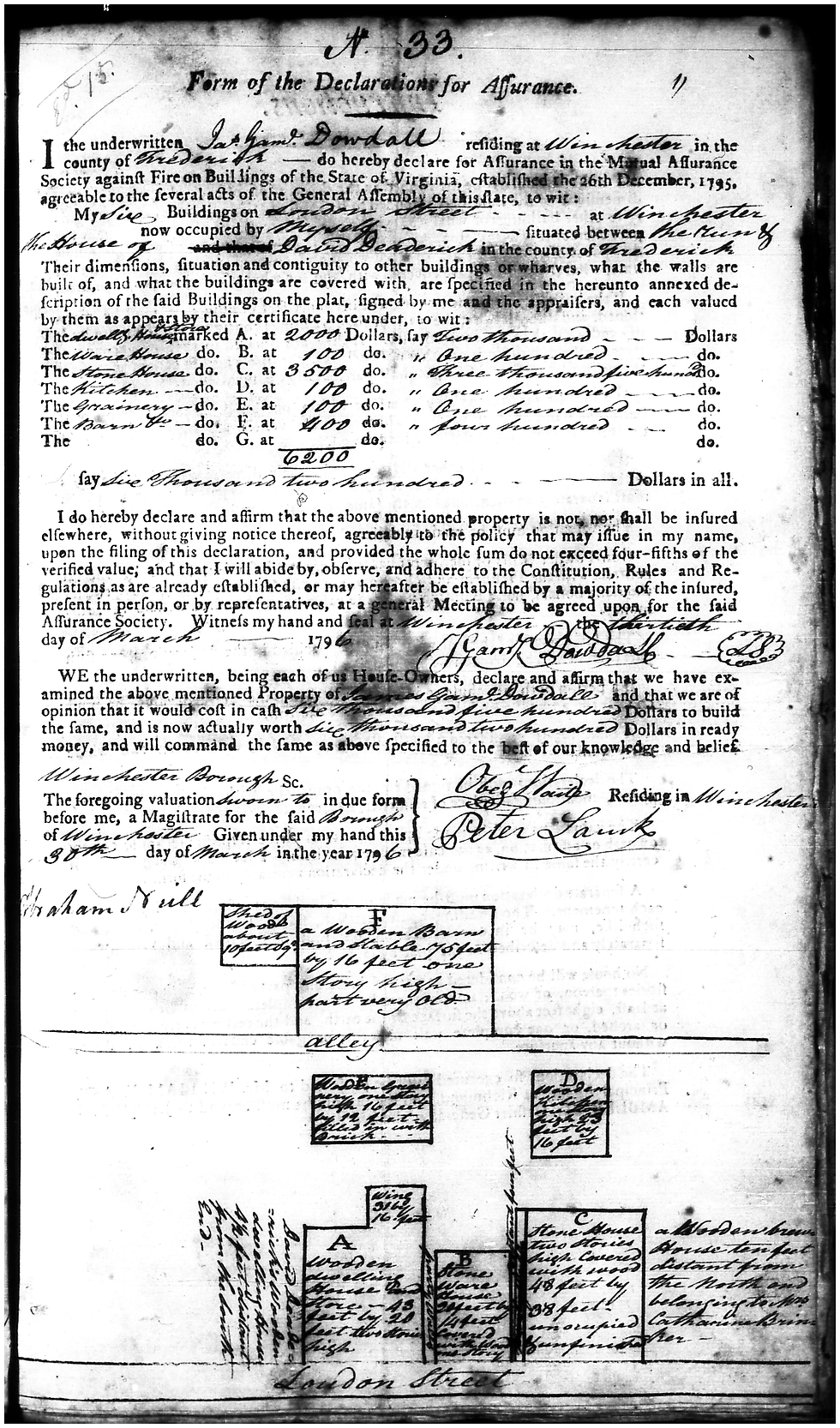The 1796 Homeowners Policy for the Dowdall-Kurtz House in Winchester
- Mutual Assurance Society
- May 16, 2023
- 2 min read
Updated: May 17, 2023

In the Mutual Assurance archives at the Library of Virginia, there is a policy for James Gamul Dowdall, a resident of Winchester, Virginia.
Dowdall built his large stone house on what was originally designated as Lot 8 in the 1752 Plan for Winchester developed by Colonel James Wood (son of Winchester founder James Wood Sr.) and Lord Fairfax (mentor, neighbor, employer, and friend to George Washington, and the main landholder in the Winchester area).
Dowdall was a prominent member of the Winchester community and a prosperous merchant and importer of goods from Europe. He was the leader of a movement in 1768 to form a Masonic Lodge in Winchester, and after the grant to establish what was known as Winchester Lodge No. 12, was named Charter Master. No. 12 was the first Masonic lodge established west of the Blue Ridge Mountains, and the first in Virginia to be designated by a number.
Dowdall also served in the Revolution as a "cadet" of Company 7, part of Daniel Morgan's Regiment of Rifleman.
The Dowdall House
Records show that Dowdall was awarded Lot 8 in 1769 as part of a settlement of a lawsuit. He built what is now known as the Dowdall-Kurtz house in 1792, and insured it with Mutual Assurance On March 13th, 1796 for $6,200.
The policy shows that there were several buildings in addition to the main dwelling, including a warehouse, kitchen, granary, barn, and another dwelling house made of wood.
The barn and a shed were located behind the main house on the other side of an alley. Just across the alley were the granary and kitchen, both of which were made out of wood.
The main stone house, a separate wood-dwelling house, and a stone warehouse were built side-by-side facing Loudon Street.
Dowdall died in 1809 and the property was eventually conveyed to George W. Kurtz and following his death in 1926, the house was then designated the Dowdall-Kurtz house.
This stone, Federal Style building still stands today on Loudon Street.

Sources: Winchester Hiram Lodge 21, Wikipedia, Taste of Winchester




Comments